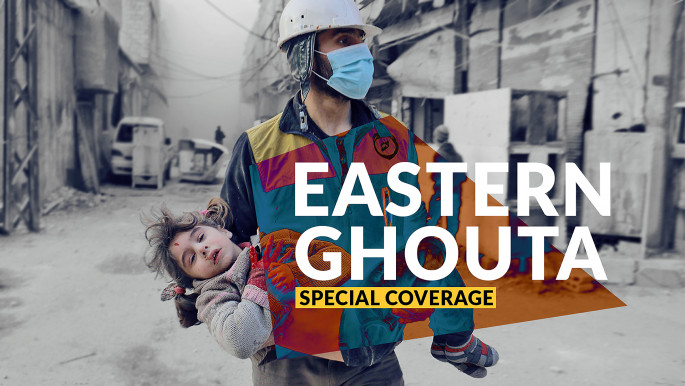Evacuation of Syria's Douma suspended as Assad continues slaughter
Syrian state news agency SANA said the suspension was the result of disagreements within the Jaish al-Islam rebel group, adding that buses that entered Douma for the evacuations on Thursday returned without passengers.
Douma is the last town held by rebels in the Eastern Ghouta suburbs of Damascus. Other rebel groups agreed to relocate to the north after a Russia-backed government offensive in February and March that killed hundreds of people and caused catastrophic destruction.
The Jaish al-Islam group appears to have reached a deal with Russia to relocate to parts of northern Syria controlled by Turkey-allied opposition forces. On Wednesday, 650 fighters and civilians, escorted by the Syrian Arab Red Crescent, left Douma and headed north toward the town of Jarablus, according to SANA and opposition activists.
On Thursday, a reporter for Syrian state TV, which has sustained a media war on opponents of Syrian dictator Bashar al-Assad since the Arab Spring, speaking from an area on the edge of Douma said no Jaish al-Islam fighters have left so far, adding that those who departed over the past three days belonged to other groups.
 |
|
Britain-based Syrian Observatory for Human Rights said the rebel group is trying to negotiate a new deal with the Russians and the Syrian government that could allow some fighters to hand over their weapons and remain in the town.
The regime's recent advances have been some of the most decisive military gains since forces took Eastern Aleppo in 2016. The UN and rights groups have criticised the regime and its Russian ally for the heavy bombardment of civilians areas and for not implementing a February 30-day ceasefire in Eastern Ghouta where the regime used chemical weapons against civilians.
The Syrian conflict began when the Baath regime, in power since 1963 and led by President Bashar al-Assad, responded with military force to peaceful protests demanding democratic reforms during the Arab Spring wave of uprisings, triggering an armed rebellion fuelled by mass defections from the Syrian army.
According to independent monitors, hundreds of thousands of civilians have been killed in the war, mostly by the regime and its powerful allies, and millions have been displaced both inside and outside of Syria. The brutal tactics pursued mainly by the regime, which have included the use of chemical weapons, sieges, mass executions and torture against civilians have led to war crimes investigations.



